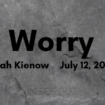Music … What’s the “Right” Answer?
Politics … religion … music … These are all discussion topics into which people tread very lightly, knowing their potential as landmines. If your personality is particularly passionate, you understand all the brou-ha-ha. As we venture into a potentially heated debate about music, I would like to offer this disclaimer up front: In offering one Christian’s perspective on music, I will not provide a list of “shalls” and “shall-nots.” That “list” is very personal and should be between God, your parents, pastors, and you.
The volume of references to music throughout the Bible should be a clue to its significance in culture and worship. In fact, music in some form (instruments, singing, etc.) is mentioned nearly ten times as often as money. That statistic startled me. We teach, preach, and hold doctrines about finances—how to be good stewards, following the principles of tithes and offerings—and we should, to be faithful to the Bible’s teachings. While most Apostolic churches use music as a meaningful way to engage in worship, we often fail to teach our churches to think critically about our interaction with music in the same ways we emphasize financial stewardship.
At the risk of great persecution, I feel compelled to step out on a limb and share some of the “back-story” for my perspective on music. I became a Christian in ninth grade at age fourteen. I had already experienced enough of the world that I was unbelievably grateful for God’s grace in my life. I could not fathom how such an amazing God would love and accept me (I am still amazed by that)! I decided from that point forward that I would seek to live my life in a way that glorified Him in everything I did. The church where I came to God was fairly middle-of-the-road, and as one of only a few teens in the church, I did not receive a list of acceptable and unacceptable music. Our pastor instructed us to follow after the leading of the Holy Spirit when choosing music. As someone who was “escaping” from the pulls of the world, I felt that my best strategy would be to totally avoid all secular media.
Further, I decided that I would only listen to music from Apostolic artists, which was pretty challenging circa 1988 given our limited selection at that time. (Please do not send in replies to tell me that you were not even born then!) I felt that would be the only way to ensure that the music I listened to was, in fact, holy, because I could be sure that these folks were holy and were walking in truth. At that point, it never really crossed my mind that many of these songs were written by non-Apostolics, which would have put a chink in the sanctification armor for sure! When some of these artists began leaving the organization for various reasons (including personal scandal), I had nothing else to listen to; but their music still ministered to me. I was left with the realization that media could carry an anointed message that supersedes the human limitations of those sharing it. In fact, isn’t that the beauty of music? That we mortals can be transformed by the power of something beyond ourselves? It was at this moment that I began to realize a scary (albeit somewhat liberating) reality about my new life as a Spirit-filled believer—the Holy Spirit was given to me not only to save me, but to help me make the right choices on how to live a life in response to God’s saving grace.
With that knowledge, my entire landscape for living for God was revolutionized. Though my left-brain-leaning thinking would at most times prefer life to be black and white, the truth is, there is a lot of gray. Another truth is that gray can be quite messy, even muddy! The Pharisees did not like gray either. That is probably why they added layers to the existing layers of law—to be sure that no one ever made the wrong judgment call. Even a quick scan over the Old Testament illustrates the shortcomings of living by the Law instead of the Spirit. Laws point us in the right direction, but the Spirit gives us the conviction and desire to follow those laws and to properly interpret them in light of our context. Simply put, laws have limitations, but the Spirit is our direct connection to God’s guidance on a day-by-day basis.
This realization led me to an increased awareness of my responsibility as a believer. God’s Spirit was given to me so that I could glorify Him in everything I did. To borrow a favorite phrase of a dear friend, Nate Binion, “All of life is worship.” If all of my life—every day, every action, every choice, every thought—demonstrates my relationship with God and how I worship Him, then my questions are really simple:
Does ________ (fill in the blank with anything) enhance my worship or diminish my worship? Does ___________ draw me closer to God or build a wedge between us?
This “test” works for music as well. Does this song reflect God’s goodness in my life? Does it reveal that I am His—that I am bought by Jesus’ shed blood—and my life is owed to Him? Stated another way, is this music meeting my true needs (the spiritual need for God and His good things) or my felt needs at that moment (a temporary warm fuzzy or an angry rant against my life)?
To take this discussion even further, music should not only reflect my relationship with God, but it can help deepen my relationship with God and others. From that perspective, music can challenge me to newer heights of worship and to greater levels of commitment. I find myself asking if anything in my music diet ever makes me feel uncomfortable, in a good way. For a penetrating example, I think of Todd Agnew’s song entitled “My Jesus.” I must confess, folks, that there are some days I simply cannot listen to those lyrics because they are too heavy, and I feel too overwhelmed by the false views I have of Jesus and of life in general. The message of that song, however, does pierce my spirit, and speak directly to the heart of the matter—are we more interested in self-fulfillment, or in self-denial, so that He can be first in our lives?
With that perspective, I cannot be satisfied listening to music that only makes me happy or only gives me a voice for bemoaning my sad situation. In evaluating my choices in music, there is a simple, guiding question to which I return: Does my music collection turn my attention to myself, or to God and others? I pray we do not sell ourselves spirituality short, focusing only on using music as a means of self-gratification. I challenge all of us to realize the transformative power of music in our lives and to use that power wisely.






